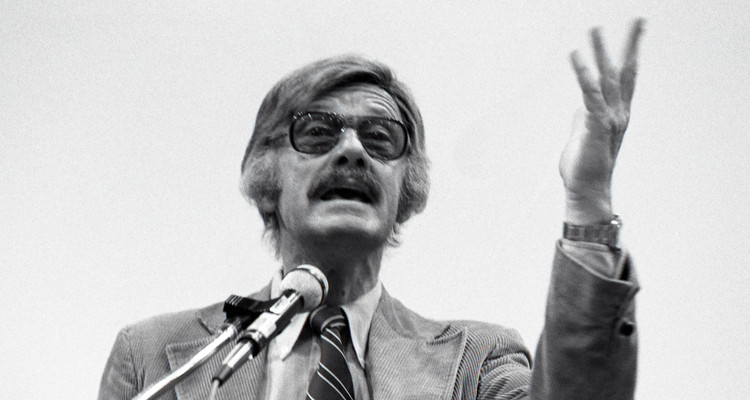“Our stories are pretty much fantasy … fairy tales for adults,” Stan Lee, writer, editor and publisher of Marvel Comics, explained to a crowd of St. Thomas students in 1978. “Our formula is a suspension of disbelief. We wondered what a superhero’s life would be like if he existed in the real world. Would the real problems of the world beset him?”
Lee is one of the geniuses behind classic characters that include the Hulk, Iron Man, the Fantastic Four, X-Men, Thor and Spider-Man. When he visited St. Thomas, he delivered a message of praise for comic books, calling them, “the greatest defense against televisionitis.” Easy to read, action-packed and filled with pictures, comic books offer readers an expedition into the world of literature. “(Children) find they can get pleasure out of reading,” Lee said. He also proudly announced that Marvel Comics was the first to use above-college level vocabulary in its comics.
Just one year before Lee’s visit, CBS began producing a live-action TV version of “The Amazing Spider-Man,” but Lee expressed disappointment with it to his listeners: “Spider-Man is a total bust. Peter Parker has no personality at all.” He added that the TV version was far less sophisticated than his own comic book version.
In regards to CBS’ TV rendition of “The Incredible Hulk,” Lee’s reviews were more positive. “It is well done in the same class of shows like ‘The Six Million Dollar Man’ and ‘The Rockford Files,’” Lee said, connecting his listeners to popular TV shows of the time.
Over his career, Lee created the first major reform in the Comics Code Authority, the comic book censorship organization. In 1994, he was inducted into the Will Eisner Award Hall of Fame, and the following year was inducted into the Jack Kirby Hall of Fame, both high honors in the world of comic books. He received a National Medal of Arts in 2008, and in 2010, he founded the Stan Lee Foundation, which focuses on literacy and diversity in the arts.
He enjoys the works of authors such as Shakespeare, Dickens and Twain, and read the Bible as a child simply because he enjoyed the way its passages were phrased. Throughout his life, he has worked to bring that love of quality literature into the more accessible sphere of comic books and has created some of the most lasting and influential comic personalities – many of which have surged in popularity recently with the advent of Marvel-based movies. (Lee has become a staple of the franchise, making typically comedic cameos.)
His visit to St. Thomas in 1978 allowed him to continue the spread of his positive message about comics and was appreciated by the “comic hounds” who waited in long lines following the speech to acquire autographs.







